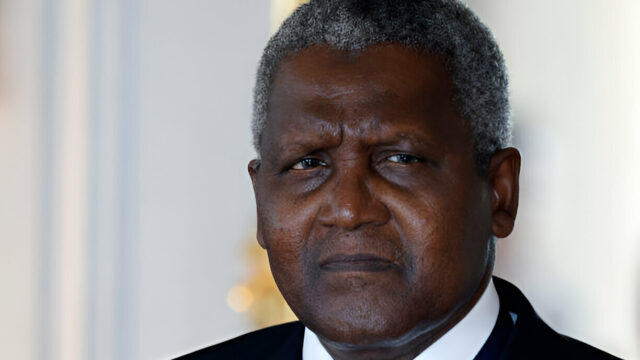
Aliko Dangote, Africa’s richest man and Chairman of Dangote Group, has assured that starting next month, Nigeria will no longer need to import petroleum products, following the implementation of the Dangote Refinery’s plans.
The refinery, he noted, has the capacity to meet West Africa’s petrol and diesel needs and the continent’s aviation fuel demand.
Dangote made this announcement at the Africa CEO Forum Annual Summit in Kigali, the Rwanda capital, on Friday, expressing optimism about the transformation of Africa’s energy landscape.
“Right now, Nigeria has no cause to import anything apart from gasoline, and by sometime in June, within the next four or five weeks, Nigeria shouldn’t import any gasoline; not one drop,” he said.
“We have enough gasoline to supply at least the entire West Africa, diesel for West and Central Africa, and enough aviation fuel for the entire continent and to export to Brazil and Mexico.”
Dangote also stressed the refinery’s capability to produce polypropylene and polyethene to meet Africa’s demand.
The Guardian reports that polypropylene is used in the production of pallets, bottles, jars, yoghurt containers, hot beverage cups, and food packaging as well as in the automotive industry to produce batteries, bumpers, instrument panels, interior elements and door trims, while polyethene is used in packaging film, garbage bags, grocery bags, insulation for wires and cables, agricultural mulch, bottles, toys, and houseware.
Additionally, the refinery will produce base oil, used in engine oil, and linear alkyl benzene, a raw material for detergents, making Africa self-sufficient in these essential commodities.
“With a population of 1.4 billion, Africa currently imports all raw materials for detergents. We aim to change that,” he said. “Give us three or four years, and Africa will no longer need to import fertiliser. We will make the continent self-sufficient in potash, phosphate, and urea, reaching a production capacity of six million tonnes within twenty months.”
Dangote also revealed that the refinery was already producing jet fuel and diesel and will begin producing petroleum by next month.
He stressed that the refinery’s capacity is too large for Nigeria alone and will also supply West, Central, and South Africa.
He said, “We have enough gasoline to give to at least the entire West Africa, diesel to give to West Africa and Central Africa. We have enough aviation fuel to give to the entire continent and also export some to Brazil and Mexico.
“Today, our polypropylene and our polyethene will meet the entire demand of Africa and we are doing base oil, which is like engine oil, we are doing linear benzyl, which is raw material to produce detergent. We have 1.4 billion people in the population, nobody is producing that in Africa.
“So, all the raw materials for our detergents are imported. We are producing that raw material to make Africa self-sufficient.
“As I said, give us three or a maximum of four years and Africa will not, I repeat, not import any more fertiliser from anywhere. We will make Africa self-sufficient in potash, phosphate, and urea. We are at three million tonnes and in the next twenty months, we will be at six million tonnes of urea which is the entire capacity of Egypt. We are getting there.”
The refinery also produces 1 million tonnes of polypropylene and 590,000 tonnes of carbon black annually. Dangote revealed plans to expand operations, with the next phase starting early next year.
Dangote acknowledged the challenges faced in building the refinery, particularly pushback from those accustomed to the status quo. He stated that many doubted his success, but failure was not an option. ”
“The pushback was very impactful because there are people who have been used to just making money trading without refinery and you know, to get people who are committed to Africa has to be people that believe in investing in Africa because the companies that are operating today are not investing, and some of the issues of stopping that investment is going to impact us, not today but in the future, which means our oil production will continue to go down because in oil unless you keep investing, the production is going to go down.
“So, that is the issue. The major burden on us was that there is no room for failure because we were the EPC contractors and ninety per cent of people never believed that we were going to deliver but we have been able to deliver now,” Dangote added.






